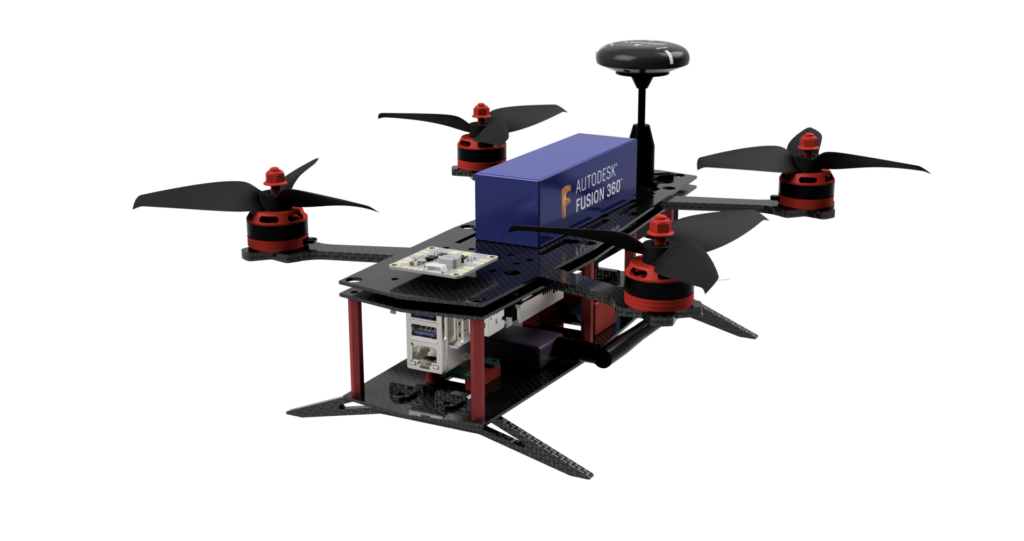Imagine attending a university workgroup where at the end of every project, an airplane will be launched—where students come together to develop unmanned, partly autonomous aircrafts and participate in competitions around the world? Students in the Aachen Drone Development Initiative (ADDI) at RWTH Aachen University in Germany have made this a reality.
Founded in 2018, ADDI is a student-led initiative offering interested members the chance to push the boundaries of design and manufacturing, exploring new technologies and progressive approaches to drone development. And to make it more exciting, everything—every part and prototype—is made from scratch. Students on the ADDI team even created a CNC milling machine to meet their design needs using Autodesk Fusion 360. Because there wasn’t an option that fit their requirements and budget, the team designed and built their own—in a short amount of time. They were able to directly edit components within the file, setting parameters to optimize design elements.
Diving into Industry 4.0
Scrappiness, innovation, and a do-it-yourself mindset are values the ADDI team has cultivated in their nearly four-year run. While the primary goal of the student initiative is participating in international competitions and pushing the barriers of their aircraft design, ADDI is also giving students the chance to develop specialized, next-generation skills to jumpstart their professional lives using Industry 4.0 principles. This can be seen throughout the RWTH Aachen campus. Some former students from peer organizations have landed jobs in additive production startups, others are serving as chairs or chief-level positions at RWTH.
Another organization preparing its members for the future of manufacturing is Sonnenwagen Aachen, a team dedicated to designing and manufacturing a solar car to participate in challenges such as the renowned World Solar Challenge in Australia. Students on Team Sonnenwagen leveraged Autodesk software to determine the best design for their car parts. They ran analyses and applied various geometries to learn how to alter car parts within the design parameters. With Autodesk Fusion 360, students collaborated to design an aerodynamic and efficient car that could withstand the forces of nature throughout the race.
This experience has enabled students to develop next-generation manufacturing skills to stay relevant for Industry 4.0. A former student from Aachen University even transformed his experience working with Autodesk as a student expert into a job here as a technical sales specialist (and boy, are we lucky).
Partnership Leads to Possibility

Aachen University and Autodesk have had a longstanding relationship, working together for technological and academic advancement. Autodesk’s Doris Fischer, a field engagement manager in Europe, has worked closely with the elite German technical university, learning how symbiotic the relationship between industry and academia can be. “Aachen University and Autodesk have been working collaboratively for about 15 years,” Fischer says. “Together, I have come to understand the incredible opportunities that exist when industry and academia put their heads together. In the case of our partnership with Aachen University, students on the ADDI team—and at the university more broadly—can build relevant skills to tackle a rapidly evolving future with Autodesk software and professional learning resources.”